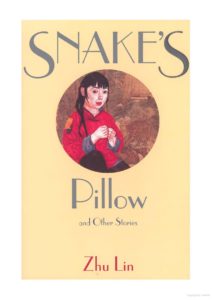By Zhu Lin
Translated by Richard King
HONOLULU: UNIVERSITY OF HAWAII PRESS, 1998
200 PAGES
 Zhu Lin’s six finely crafted stories are set in the Jiangnan region of China, far enough from Shanghai to be rural, yet close enough to the metropolis for its peasants to know a great city. Her peasant protagonists are fortunate in the lush landscape and benign climate of their region, and the relative prosperity of the region is a magnet for the less fortunate during periods of famine, political upheaval, and calamitous weather. In this pleasant land, however, material comfort is not synonymous with compassion, generosity, or kindness. The peasants are greedy, cruel, suspicious, and quick to believe the worst about any stranger or woman. As a teenager, Zhu Lin, the daughter of a Shanghai intellectual, was relocated to Anhui Province where she remained for six years. Her experiences in one of China’s poorest districts helped develop her penetrating insight both into the working of the peasant mind and the working of nature.
Zhu Lin’s six finely crafted stories are set in the Jiangnan region of China, far enough from Shanghai to be rural, yet close enough to the metropolis for its peasants to know a great city. Her peasant protagonists are fortunate in the lush landscape and benign climate of their region, and the relative prosperity of the region is a magnet for the less fortunate during periods of famine, political upheaval, and calamitous weather. In this pleasant land, however, material comfort is not synonymous with compassion, generosity, or kindness. The peasants are greedy, cruel, suspicious, and quick to believe the worst about any stranger or woman. As a teenager, Zhu Lin, the daughter of a Shanghai intellectual, was relocated to Anhui Province where she remained for six years. Her experiences in one of China’s poorest districts helped develop her penetrating insight both into the working of the peasant mind and the working of nature.
The stories are harsh, offering no hope of redemption. In the title story, snake’s pillow is the name of a beautiful flower that blooms hidden in the shade. Nowhere are Zhu’s observations of the natural world and her use of it as a metaphor for human behavior more acute. The flower becomes a symbol for the defenselessness of a young woman named Rice-Basket who has been raised to believe in the goodness of humanity. Over and over again RiceBasket’s good deeds are distorted by her evil-minded neighbors. Eventually her innocence leads to her ruin and the misery of the village simpleton whom she had befriended. In a similar vein, the heroine of “The Web” is abused and deceived by the men in her life until she regards herself as a fly in a spider’s web, slowly having all the life sucked out of her. In “Night Songs,” an old woman described as someone who was “made mean and cantankerous by poverty” raises a foundling girl as a bride for her moronic son. When the girl runs off with the riverman who has become her lover, the peasants track them down, blind the fisherman, and after raping the girl, sell her to river pirates.
As a teenager, Zhu Lin, the daughter of a Shanghai intellectual, was relocated to Anhui Province where she remained for six years. Her experiences in one of China’s poorest districts helped develop her penetrating insight both into the working of the peasant mind and the working of nature.
In virtually all of these stories, women are portrayed as victims. Rape is a regular occurrence with a double penalty. Not only is the woman in question physically violated, but she loses her reputation and standing in the community. The bitterness with which Zhu Lin delineates the Chinese woman’s role in society is one of the characteristics of her work. Her unblinking descriptions have on occasion resulted in official censorship. The story “Festival of Graves,” about a zealous official who orders the third trimester abortion of her own daughter, has passages that were removed in the Chinese publication and have been restored in the English translation.
While the elegant stories in Snake’s Pillow and Other Stories would be a welcome addition to any course in world literature or short fiction, they do not need to be solely relegated to literature or Asian studies classes. Using literature to reinforce the concepts taught in the social sciences is an excellent way to expand students’ knowledge of Asia in introductory classes like sociology and political science. Zhu Lin’s stories portray the social and political realities of China in a way that no textbook description can approximate. They would serve as a provocative opening for discussion on the role of women in Chinese society, the life of the peasant, the social consequences of political zealotry, and the organization and tyranny of small communities. Both as literature and a realistic depiction of life, these stories add immeasurably to our knowledge of China.

